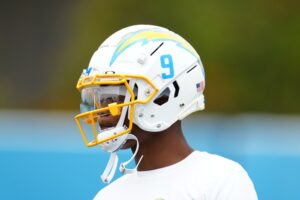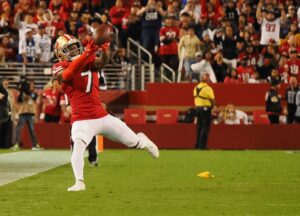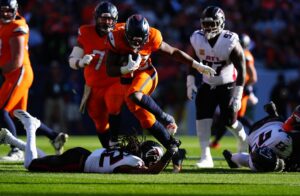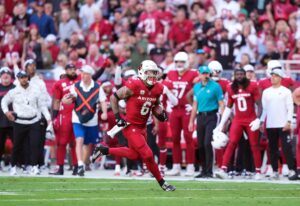Green Bay Packers president Mark Murphy submitted a bid for Green Bay to host either 2019, 2020 or 2021 NFL Draft.
Murphy understands that Green Bay is a long shot to host such a prestigious event. However, he believes the franchise and the city have taken some steps to accommodate the massive influx of football hopefuls, their families, and tourists.
As of today, weather and hotel rooms are the main reasons for concern.
Green Bay Bids to Host NFL Draft in Near Future
This year, the draft will be held outdoors at the Ben Franklin Parkway in Philadelphia, if the weather cooperates. However, if the weather does not allow it, The Academy of Music or the Wells Fargo Stadium could be fallback plans. Hosting the draft outdoors is a threat to Green Bay because it is still cold in April, and the city has little option as far as fallback plans, unlike Philadelphia.
Murphy thought Resch Center, a 10,000 seat arena on the doorstep of Lambeau Field, would be a good place to hold the draft, per Ryan Wood of the Milwaukee Journal-Sentinel.
The other problem for the city is the lack of hotel rooms. There are 4,300 hotel rooms in the Greater Green Bay region. By comparison, there are over 16,000 in Philadelphia County and over 35,000 in the region. Murphy went on to say that 250,000 people attended the draft in 2015 in Chicago. The following year, also in Chicago, the number dropped to 225,000 due to poor weather. As of latest updates, there are 157,000 people registered to attend the event.
“I think (the hotel space is) certainly not what you’d need for a home game or a Super Bowl,” Murphy said. “Lodge Kohler would be – having a nice hotel would probably help – not that we don’t have other nice hotels. So we’ll see. I keep my fingers crossed, but I’d say it’s probably a long shot,” Murphy said.
To combat that problem, Murphy suggested to Wood that the northern half of the state of Wisconsin has enough hotel rooms.
Titletown District is a key ingredient in whether or not the NFL accepts to use Green Bay has the host city. At the NFL meetings, Murphy said that Titletown would help keep tourists and draftees around Lambeau Field. Back in September, NFL Commissioner Roger Goodell said Green Bay is in the mix.
“I think that whole development that’s happening around the stadium could be a great place for it,” Goodell noted, “but a lot of communities are trying to do this. Each community is putting their own twists on these things, which is really great.”
They will know by next year if they host the 2019 draft. Green Bay is facing stiff competition as Atlanta, Canton, Dallas, Denver, Jacksonville, Los Angeles, and Pittsburgh are competing for the prestigious event.
What It Could Mean For Other Small Cities and NFL Globally
If Green Bay breaks the mold and hosts the prestigious event, it could mean that other small cities could host the draft as well. Cities such as Canton, OH, another applicant for the 2019 draft, Pittsburgh, Kansas City, Cincinnati, Cleveland, Buffalo, or Seattle could find themselves hosting the draft.
It would be beneficial to the league, as these fan bases would expand worldwide with coverage, and boost the city’s economy.
Teams like the Packers, Steelers, Raiders, and Dolphins have a big following outside the United States. An event such as the draft could add to their worldwide audience and in return help the NFL. The NFL wants to expand the sport of football worldwide, which is why every year there are games played in London. Last year the Oakland Raiders played the Houston Texans in Mexico City, and Buffalo had played games in Toronto.
Chicago held the last two drafts. Choose Chicago, the city’s tourism agency, organized the event. In their report to the NFL, they state the event created 2,095 temporary construction and labor jobs, 846 new jobs, and had a Total Economic Impact of $81.6 million.
“The national exposure and intent to visit is significant,” says Desiree Rogers, Chair of Choose Chicago.
The success of the draft is not just measured by attendees, but also by the city itself, and local inhabitants. The report also states that 65 percent of attendees plan to return to Chicago for a vacation in the next 12 months. While smaller cities don’t have as many concert halls, venues, restaurants, etc. to offer, they still have storied franchises, other sports teams, museums, and beautiful landscapes. And, in the end, the only people traveling to attend the draft are football fans, not your typical tourist.






